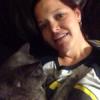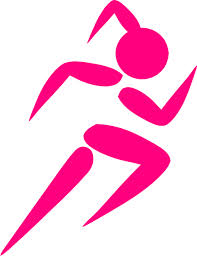Search the Community
Showing results for 'Yogurt'.
Found 17,501 results
-
Good morning! Today is my Friday so i am in a great mood. Looking forward to a runaway with the hubs this weekend! I plan to enjoy but not over indulge too much! ???? Today.... B-protein drink S-greek yogurt L-Salisbury steak D-?? Havent mapped that far Have a great day!
-


Were you guess as prepared as u thought u would be?
liannatx replied to jackiemc1987's topic in POST-Operation Weight Loss Surgery Q&A
I was fully prepared and nothing surgery wise or physically has really surprised me. I did however have an irrational full blown panic attack about 2 weeks post op. I was laying in bed almost asleep and was overcome by this feeling/idea that I would never eat real food again, and would be sipping Water and Protein drinks for the rest of my life. I went into a cold sweat, rapid heartbeat, tunnel vision, all out 30 minute anxiety attack LOL! I got up and walked it off, and that has been my only real moment of "WTF did I do to myself"... but it was a doozy. Ironically, I was already eating soups, yogurt, sugar free Jello and pudding at that time.... so it really made no sense. -
Lose the yogurt and the apple sauce. The yogurt being low cal is probably making up for taste through added sugar. The apple sauce, although seemly healthy is another form of sugar. Replace those with more protein or something 100% sugar free and little to no carb. The sodium, even low sodium, in the Progresso soup might cause some water retention. For exercising, carry some weights on the walk. That's my two cents
-
My daily routine is pretty much the same. Egg beater for breakfast with protein shake (costco Premier shake) about an hour later. 100 calorie yogurt and laughing cow cheese at lunch and another protein shake an hour later. 100 calorie progreso soup for dinner and either apple sauce or sf Popsicle or protein drink after dinner. Seriously I eat pretty much the same thing day in, day out. Only difference is I sometimes sub the yogurt for a boiled egg. I feel like I am eating all day!
-


3 weeks post-op Am I doing this right?
crayon67 posted a topic in Tell Your Weight Loss Surgery Story
I am 3 weeks post-op sleeve surgery and am concerned about stretching my "pouch". I know there may be a bit of stretching down the line, I just am so nervous. I did not have any pain at all after surgery, have had energy (not back to work yet though so that may change), and started walking (slowly) on the treadmill 2 days post-op. I have eaten very finely chopped up chicken already as well as eggs, cottage cheese and Greek yogurt. I have not had that "full" feeling I have read about but I do know when I am satisfied and stop eating. I have not felt nauseous at all even the evening after the surgery. Are there others out there that have had it "easy" post - op? I have a super supportive family and I'm so excited about this new stage in my life. I just want to do it right. -


Reversal for gastric sleeve?
Gladys62 replied to Gladys62's topic in POST-Operation Weight Loss Surgery Q&A
The Premier protein shakes are okay but all the protein shakes irritate my esophagus and stomach. I'm trying to get all of my protein with meat and Greek yogurt for now. The shakes feel like they just stick to the irritated places and burn. They aren't an option right now. -


5 days out - Are Eggs ok?
blashlee replied to BoerneTX's topic in POST-Operation Weight Loss Surgery Q&A
If your surgeon gave you an eating plan, I would say stick to that. I'm in my Week 2 post op and trying foods from a limited list. Eggs and refried beans were on there so that's what I had for my first food. Her advice says yogurt goes down best but I learned today that that's not true for me. If it went down well then it's probably ok but double check with your surgeon. -
Well it's been a week since surgery and I actually feel pretty darn good! I am meeting my protein requirements with Oikos Triple Zero Greek yogurt, which has 15 gm of protein and tastes amaaaazing, as well as a couple of Unjury shakes a day. I also drink 8 oz of V8 with fiber (who knew??) and I add a serving of Miralax to something every day to make sure things stay regulated. I get plenty of water or tea because I found out that dehydration actually feels like hunger. Not fan. I am down 22 pounds since I started my 2-week preop liquid diet, averaging 2 pounds a day weight loss this week. I have a JP drain in from surgery but I get that removed tomorrow and I cannot WAIT. I am creeped out by the drain and constantly worried i will pull out the tubing so once that is no longer an issue I will have much greater peace of mind. Exercise is supposed to be a 5-minute walk a day but I have been pushing it. I have a household to run, after all. Walmart is a great way to get some walking in, lol. Right now I am very happy I decided to take control of my health. The second my clothes start to look ridiculous because they are so baggy I am going shopping. I have not bought any new clothes in 2 years because I was not going to be this weight for very long. ooops. Oh well. Shopping will be a lot more fun next time I think!
-
I got advanced to soft foods finally. I had a scrambled egg and two tbsp if refried beans. It was the greatest thing ever. Today I had yogurt and it didn't seem to like me :-/. I'm thinking the next few months is going to be a whole lot of trial and error. Guess I'll start getting ready to open up Chef Blashlee's Test Kitchen!
-


First Day on Stage 3 Puree
going2servive replied to Prada-Savassi's topic in POST-Operation Weight Loss Surgery Q&A
I find Greek yogurt vile as well. -
You sure can add your protein powder! Best gift ever! I LOVE my Nutri Bullet! Add your liquid, protein powder, or yogurt, or even a few ice chips. Screw on the blades tight so it doesn't leak and blend away! You will love it! :-)
-


Working full time after sleeve
JamieLogical replied to branlee90's topic in POST-Operation Weight Loss Surgery Q&A
If you're 7 weeks out, there shouldn't be any issues. Bring snacks with you to work and lunches if you can't get home at lunch time. I bring string cheese and greek yogurt for snacks and go home or out for lunch each day. But when I go home I just eat leftovers, so I could just as easily bring those into work with me if I didn't have time to go home at lunch. I also keep some emergency rations in my desk... peanuts and canned chicken salad, just in case I need something in a pinch. -
Edamame Black Olives & Cheddar cheese Mini Babybel Cheese Yogurt Quest Protein Bar Ham/Swiss and Avocado roll up Cutie or Halo Green Grapes Sugar Snap Peas dipped in Ranch vanilla or Butter Toffee Almonds Pistachios These are all my favorites
-
I have light and lively greek yogurt, it's only 80 calories and they are so good. I have snack bags of thin pretzel sticks, 100 calories per bag and if I want something a little sweet I get animal crackers, 16 crackers are 120 calories. I know they have carbs, but I am still losing weight so I am good with them. Every now and then I will have 2 oz of ice cream but that is not much. I can't eat much at a time so when I want something I eat it but only a small amount. If you don't have something that you want every now and then you will get board and do things you should not. This is a lifetime change and it is not easy for any of us. It is depressing some times when I am out with family and friends and I can't eat. My family understands and they are an inspiration to me. I eat anything that I want to eat after I get my protein in and it is working for me. Try different things, I found that my taste buds have changed. I can't eat the bad things that I use to because it tastes bad now. I think that is normal to. I keep my calories at 800 - 1200.
-
My snacks are usually reduced fat string cheese, Dannon Light & Fit Greek Yogurt with some granola or Kashi cereal mixed in, 1 oz. of dry roasted lightly salted peanuts, some sort of meat stick (like a beef stick, but usually turkey instead), and protein bars.
-
Hello Everyone! Thanks for the warm welcome. I have been pretty much at a standstill for the past 6 months, losing and gaining the same 5-7 pounds. I am onward and downward. I started a boot camp this week (6days/week, 3 kickboxing/3 strength training), so hopefully that will jumpstart my weight loss so I can reach my goal. Burned 484 calories in kickboxing today. Whoot! Pre workout - Protein shake B - greek yogurt w/1T granola, 1T craisins S - cheese stick/10 almonds L - tuna salad S - Protein shake w/fiber D - ground turkey, cheese slice, green Beans
-


Feeling like I am taking the easy way out :-/
AvaFern replied to Butterfly512's topic in General Weight Loss Surgery Discussions
I feel guilty for taking the "easy" way out. I feel ashamed that unlike "normal" people I couldn't control my weight with diet and exercise. I have told my three best friends and I have no intention of ever telling anyone else, largely because I know that most people think bariatric surgery is the easy way out and it attaches a stigma to you. Oh, look, the fat girl got skinny because she had her stomach cut out- what a total cheaterhead. Must be nice to take the easy way out! I am fully aware that that is exactly what everyone who has never struggled with food and most people who have not had the surgery feel about it and I am fine with that. We are all allowed our opinions and I don't put my decision in a position where other people can judge me for it. That being said, I wouldn't say this was the easy way out. Was it easier? Yes. I have gained and lost 50-90 pounds no less than 5 times in 10 years. This last time with the sleeve was the easiest because for the first time ever I don't feel like I am starving, while forcing myself not to eat. The first time I lost weight was in high school and I had a small bag of craisins for Breakfast, 2 packs of 2ct saltines for lunch, I worked out for 2 hours at the gym and I had yogurt and oatmeal for dinner. Yuck! I was always hungry and always miserable but I graduated at about 120. As an adult, my successful diets were those where I ate 2-3 Protein bars a day and a Lean Cuisine, worked out 2-4 hours a night, and was completely miserable trying to not eat. One day, I inevitably gave in and I binged, and I would literally gain back 5 pounds in a day then spend the next week trying to lose them all over again. I had a hate-hate relationship with food because I was always SO hungry but whenever I ate anymore than 1200 calories I felt like a failure and I would end up eating way more than that as an emotional reaction. As such, I reached my personal tipping point at 237 pounds in August of 2013. My brother and sister came to visit me that summer and while neither of them would ever say a word, I know they were ashamed that the person that was supposed to be their cool older sister was so disgusting. I decided then that I would look into sleeve surgery. Since I was self-pay, the point between my first meeting with the group of people who wanted to hear about the surgery to the day I was rolled into the OR was a little under 3 weeks. The first two weeks I thought I had ruined my life. What the heck had I done?! I cut out 20% of my stomach forever?! OMG I am an idiot. There as a lot of crying and feeling miserable and since I was self-pay there had been no pre-diet or nutritionist or group support, so I figured I could get on board with figuring out my new stomach or, well there was no other option. I didn't follow all the rules and I still don't, but for the first time in my life I can actually eat like a person who doesn't obsess over food. If I want to go out to dinner, I do. I eat a few bites and I save the rest for later. If I want some chips with nacho cheese, I have some, I enjoy them, and then I'm over it. The last month or so I haven't been watching my calories as closely as possible partly because I just had my last plastics surgery and partly because I know what I can and can't eat to maintain or lose at the weight I'm at. Food is no longer calling my name every second of the day and when I eat too fast, too much, or anything with butter, fat, or excess sugar, I pretty much throw up instantly, so I've been conditioned to stay away from that food. My sleeve has made my life something other than a life about food. Sure, it was easier to not have to starve myself and worry about binging, and it is far easier to maintain now than it would be with a full stomach. I will admit, I just don't have the willpower when it comes to food to not eat an entire pan of brownies, so like an alcoholic who doesn't go to bars, I am just a food person who doesn't have the option anymore to eat too much. The sleeve is a tool and it does make things easier, but if you have a tool available to you, why in the world wouldn't you use it? Now I can't enjoy food anymore, I have a hard time going out to dinner with people because I can't eat much, and I barf fairly regularly. I have to take B12 and Iron because I'm anemic and sometimes I worry about whether or not the sleeve far into the future will be bad for me. But right this second, I am very happy to have it and very happy I took the easy way out because I would rather have done so and be healthy and thin than still be overweight and miserable, fighting the hard fight and getting nowhere. I am a weight loss cheater...and I am cool with that. -
Yeah, my nutritionist told me never to eat carbs without protein. So always peanut butter or greek yogurt or something like that along with my fruits or whole grains. Of course, I'm still never really eating fruits or whole grains, so it hasn't been an issue for me yet.
-
@@2babutterfly - the house was a no. Another no. Ugh! @@JustWatchMe - hope you had a blast at Neil Diamond last night! So, I did two days of liquids and I'm moving on. I've got meals planned and will get in Water and exercise today. B - 8 oz shake w/fiber L - greek yogurt w/fiber & granola S - 8 oz shake w/fiber D- brown butter shrimp 72 oz water, 30 minute cardio video am, 45 minute walk pm 791c, 94p, 29nc I hope you all have a swell day! I'll check back later. Take care of you.
-
Good morning all! Had a good day yesterday..followed my food plan, chugged my Water and had a lovely 2 mile walk. The scale made me happy this morning....199.6. I need to keep working because I'm way to close to that 2! My plan today.... B- Protein Drink S- greek yogurt L-smart one frozen dinner D- grilled salmon, roasted mushrooms and broccoli S- 40 cal fudge pop Waterwaterwater @s_suther. Was the house a keeper? @electricboogaloo-- welcome! Missing the rest of you! I hope all is well! Have a great one!
-
My surgeon does not allow fruit for a minimum of 3 months post op. He feels that you're trying to deplete your body of as much sugar as possible so it burns fat instead. It hasn't been that difficult to not have it accept find Greek yogurt flavors I like that aren't fruit. Also for Protein I've been using musclegens GENEPRO powder. It's 30 grams of protein in just a tablespoon of powder and 98 calories. I add it to 80 Greek yogurt and I have 42 grams of protein which makes me inly 1& grams away from my minimum requirement of 60 grams. It's totally tasteless. You can even get samples off their website $3.50 for 2! It's a great powder my nutritionist approved it.
-


April 6 sleeve!
newalysseonlife replied to aubrey222's topic in POST-Operation Weight Loss Surgery Q&A
The struggle is real my friend... what are you doing for protein? are you able to have full liquids yet? (creamed soup, yogurt, thinned cream of wheat?) I am in love with Fair Life milk. its lactose free and has less sugar and more protein, has helped with my protein goals putting it in my shakes, soup, etcMy first post-op appointment is tomorrow too! Where do you get the Fair Life milk? I need something to add to soups that doesn't alter the taste in a negative way. Thanks! I got some at Target. Good luck tomorrow! Let us know how it goes! -


dumping syndrome with a lap band
RavensQuote replied to heidi05's topic in POST-Operation Weight Loss Surgery Q&A
Hi all, I had the lapband done in November 2010. I was the smallest patient my doctor performed this surgery on but I had some serious health risks including a stroke 6 months prior that made this decision an important one to start walking on a path to better health. Shortly before my surgery, my A1C blood sugar levels were 9.6 and I was on 3 diabetes medications, including Victoza and a number of other lifestyle disease medications. After the surgery, my endocrinologist wanted to keep me on Victoza but almost all the others were dropped. I stayed on that for nearly 3 years before I started experiencing what I later would learn was dumping syndrome. My A1Cs were phenomenal between the lapband (no bread, Pasta or rice) and the Victoza. But because of my stroke history, my regular doctor misdiagnosed me thrice as pre-stroke/heart attack poor lifestyle high blood pressure symptoms (DS symptoms can raise your blood pressure, especially if you don't know what's causing it, but when not having symptoms, my BP was fine.) I did not agree with him. I know my body very well. I felt it was something different, but what I didn't have a clue. It took more than a year before I was finally diagnosed with Dumping Syndrome (DS)... and even now, my doctors don't think mine behaves as their other patients who have had dumping syndrome behaves. Most literature you read says symptoms can start as early as half an hour after eating a trigger food up to 4 hours later. My experience is more like 6-12 hours later, sometimes as much as 24 hours later. Read: http://www.battlediabetes.com/articles/diet/what-is-diabetic-dumping-syndrome Read: http://www.webmd.com/digestive-disorders/dumping-syndrome-causes-foods-treatments Lapband patients typically do not experience dumping syndrome, but I think if you are already a diabetic and on one or more diabetes medications you are more likely to experience dumping syndrome. I also suspect because of how food passes through the band to the stomach and to the rest of the digestive track, that might account for my symptom delays from the typical DS patient. For the most part, I've sussed out my primary trigger food, but be aware Dumping Syndrome, it's triggers and patterns can be unique for each patient. My trigger food: Most forms of liquid or soft dairy (Milk, Cream, Cream cheese, Buttermilk, Sour Cream, Yogurt, etc...). Hard cheeses so far don't seem to bother me. Medications, I believe as do my doctors, were a contributing factor, however, even when they took me off all diabetes medications, I still experienced DS, but less severe. However, at that time, I hadn't yet discovered all my trigger foods. I knew milk in my coffee was one, but hadn't realized cream in any Indian food I'd eat, or buttermilk in my ranch dressing, etc... were also triggers. I'm very careful about what I eat these days. Dumping Syndrome isn't life threatening, but it sure as heck feels life threatening. I avoid known sources of these dairy triggers, but it doesn't take much (a sauce on some dish that contains even a small amount of dairy) and I feel like I'm experiencing a stroke, heart attack or want to pass out at a given moment.... and when the symptoms are happening, I sometimes can't be sure if it's not the symptoms of a stroke like I previously experienced (scary) until I feel the food finally making its way to my bowels. Only then will the symptoms stop. Tricks to Help Most Folks with Dumping Syndrome Here are some tricks to help minimize symptoms both to prevent and to hasten symptoms once it's already begun: Fiber... all forms: I use Benefiber in my coffee and Soups. Lots of salads (sans dairy-based dressings), and I eat fibrous fruits and veggies at almost every meal - raw and cooked. Water... both before and during symptoms. Part of the symptoms you experience is your body trying to pull out water from your bloodstream and other systems and move it toward your small intestines/bowels to flush out the offending food. Symptoms disappear much faster if you drink water as soon as you experience the symptoms... and if possible, keep properly hydrated throughout the day. Ask... Every time I order something, I ask if the dish they are preparing me has any dairy (or for you, your own trigger food) in it. However, it's not fool proof. I asked if a dressing I ordered had any dairy in it... the young waiter came back and said... "no, not at all... just buttermilk." I looked alarmed and told him Buttermilk was dairy. Stay alert. Monitor & Log... It won't be easy but it helps to find 2 to 4 very typical weeks and log everything you eat. Simultaneously, track your blood sugar levels... (min. 3x per day, up to 6x per day) to note when your blood sugar levels plummet due to DS. You don't have to share with your doctors what offending foods you are eating but this exercise can really help you identify the trigger foods and when you're likely to experience DS symptoms. Avoid Trigger Foods... Yes, some of the trigger foods we love are going to be a challenge to avoid, but at least if you've done the exercise to track your eating, and have identified which ones are the biggest trigger foods and when you can expect to experience DS symptoms, you can then make an informed decision about whether you REALLY want to have that delicious trigger food. If you experience symptoms as alarming as mine, that's a pretty darn good deterrent for avoiding those foods. I sincerely hope my experiences (and I must say I'm still trying to figure it all out) has helped even one of you minimize or avoid these frightening Dumping Syndrome symptoms. Be well everyone. -
I eat at least 3 servings of fruit a day. I do get my protein first, but Greek yogurt and an apple after a workout is the best! I also eat a lot of dried fruit--peaches, apricots, figs, plums. My weight-loss has not stalled since surgery this past August. Eight months out and going strong!
-


April 6 sleeve!
HindsightBias replied to aubrey222's topic in POST-Operation Weight Loss Surgery Q&A
The struggle is real my friend... what are you doing for protein? are you able to have full liquids yet? (creamed soup, yogurt, thinned cream of wheat?) I am in love with Fair Life milk. its lactose free and has less sugar and more protein, has helped with my protein goals putting it in my shakes, soup, etc My first post-op appointment is tomorrow too! Where do you get the Fair Life milk? I need something to add to soups that doesn't alter the taste in a negative way. Thanks!












